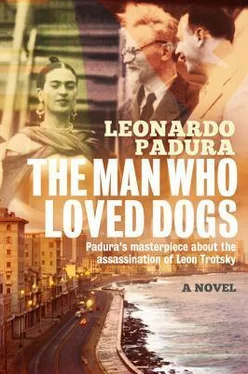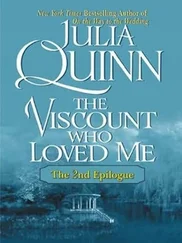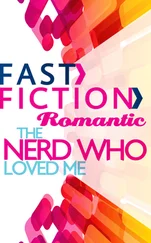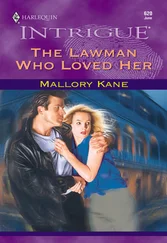“A long time ago you wanted to read this. .”
As soon as I heard him, I guessed what it was about. They had to be, and in fact they were, the pages written more than twenty-five years before by Jaime López, the papers whose existence I had known about for ten years and that, every time the subject came up, I asked Iván to let me read, since I considered that, by reading them, I would touch with my own hands the elusive soul of the man who loved dogs.
As he ate, I delved into that story, the reflections and letters about the years in Moscow of a Ramón Mercader who, in a sick way, insisted on clinging to the embarrassing mediation through the ventriloquist Jaime López and in presenting himself as a person who could be viewed with a certain distance. Or was it that he felt so stripped of his own self, so removed from the original Ramón Mercader that he preferred, to the end, to continue being one of his disguises? The essential man, the primary one, the one who had been in the Sierra de Guadarrama — had he been devoured by the mission, the dogma, and the ruthlessness of history until turning into a character who could only be seen in the distance? What was written gave off the bad flavor of a confession barely capable of hiding the request for forgiveness and the frustration of a man who, from the perspective given to him by years and experienced events, at last confronted himself and what he had signified in a sordid intrigue destined to devour him to the last cell.
But the most alarming thing, at least for me, was discovering the commentaries and questions that, in tiny letters, Iván had added in the margins of the pages, with different-colored inks and a variety of nuances — signs of an excessive and obsessive return to those words over the course of the years. I asked myself whether Iván, more than interrogating the author of the confession, had not been looking for an answer lost within himself. The papers, in addition, were greasy, as if they had been through many hands, when I knew that Iván and the tall, thin black man who brought them to him (and Ana?) were the only ones who had laid eyes on them. I was alarmed by the relationship my friend could have established with that confidence and with the intangible being living behind it.
“I’m left with a desire to know what happened once Caridad arrived in Moscow and how Ramón managed to get them to allow him to leave. .,” I told him when I finished reading, without daring to comment that my real concern had to do with him. Then Iván handed me a cup of recently made coffee and turned around, as if my curiosity did not interest him.
On the small table, Iván began to serve Truco’s food. Since I’m not especially fond of dogs, that night I had forgotten about the animal, and it was only at that moment that I realized he had not come out to greet me. I looked for him and found him under an armchair, his eyes wide open, lying on a piece of fabric. Iván brought him the plastic plate; Truco smelled the food, but didn’t muster any enthusiasm to taste it.
“Come on, boy, eat,” Iván said to him, kneeling next to the animal, and added tenderly, as if he were surprised: “Come on, look, it’s meat!”
“Is he sick?”
“He’s sad,” Iván assured me while he ran his hand over Truco’s head. I noticed the dog’s eyes, and although I’m not the type to believe those things, I seemed to detect a certain pain in his damp and disconsolate gaze. Iván showed him some food, but the dog turned his head. “He knows what happened. He hasn’t eaten for three days. Poor Truco.”
Iván’s voice sounded regretful. He moved away from Truco, washed his hands, and drank his coffee. Seated at the table, he lit a cigarette while looking at his dog, and I remember that I thought: Iván is going to cry.
“What Truco has is called melancholy, and it’s an illness that cures itself or it can kill him. .,” he said, nearly dragging out the words. He took a few drags from his cigarette and finally looked at me. “Take those papers with you. I don’t want them near me.”
“What’s wrong, Iván?” His attitude, more than surprising me, was starting to worry me. In his eyes there was a damp sadness identical to the one floating in his dog’s look.
“Meeting that man was the worst thing that happened to me in my life. And quite a few fucked-up things have happened to me. . I’m going to finish writing about how I met him and why I didn’t dare to tell his story from the beginning. I don’t want to do it, but I have to write it. When I finish, I’m going to give you all of my papers so you can do whatever you want with them. . I am not a writer nor was I ever, and I’m not interested in publishing it or in having anyone reading it. .”
Iván left his cigarette in the ashtray on the table. He seemed very tired, as if nothing mattered to him, and it even seemed to me that he was breathing with difficulty, like an asthmatic. When I was about to reproach him for his last words, he got ahead of me.
“I am also a ghost. .”
At that moment I understood what Iván was trying to say to me a little bit better. And I thought the worst: he’s going to kill himself.
“Why are you going to give me everything you’ve written? What does that mean?” I dared to ask him, fearing the worst, and I wanted to make things less dramatic. “Look, you’re not Kafka. .”
“I’m not going to kill myself,” he said to me, after letting me suffer for a few seconds. “I’m not crazy, either. It’s just that I don’t want to see those papers anymore. It’s better for you to have them, since you are still a writer. . But if you want, you can burn them; it’s all the same to me. .”
“I don’t understand, Iván. Doesn’t the truth matter to you? That man was a son of a bitch and there’s no excuse nor. .”
“What truth? What is the truth? And he wasn’t the only son of a bitch who did inexcusable things.”
“Of course not. But he was one of the ones who helped Stalin turn twenty million people to ash in the name of communism. . And he didn’t kill just anyone. . He killed another son of a bitch who, when he was in power, ripped the heads off of who knows how many people. . All of this is too heavy, Iván. Note that the Russians, after having taken the lid off things, closed it all up again, nice and tight. . You have to do a lot of terrible things to kill so many people. .”
“Mercader was a victim, like most of them,” he protested, less vehemently, as he looked at the lighter the man who loved dogs had left him as an inheritance.
“He was more than a victim, and that’s why he couldn’t live in peace. Do you know why he told you his story and then wrote this letter? So that you would write about it and publish it. .”
Iván rubbed his shaved head forcefully, as if he wanted to erase something inside it. And he was saying he wasn’t crazy?
“Sometimes I think like you do. But other times I believe it was the need of a dying man. It has to be really fucked-up to live your entire life as if you were someone else, saying you’re someone else, and knowing it’s better to hide behind the other name because you feel ashamed of yourself.”
“What kind of shitty shame are you talking about? None of them had any shame or anything like it.”
“Don’t you think he paid for all his faults? Do you know that another prisoner from Lecumberri said that Ramón had been raped in prison?”
“He had to know what the risks were, and even then he accepted it. . And it seems fine to me that his ass was ripped open in jail.”
“He wasn’t running around killing people. . He was a soldier who followed orders. He did what they asked of him out of obedience and conviction. .”
Iván stood up, served more coffee in the cups, but neither of us drank. He was looking at his dog again when he said to me:
Читать дальше











